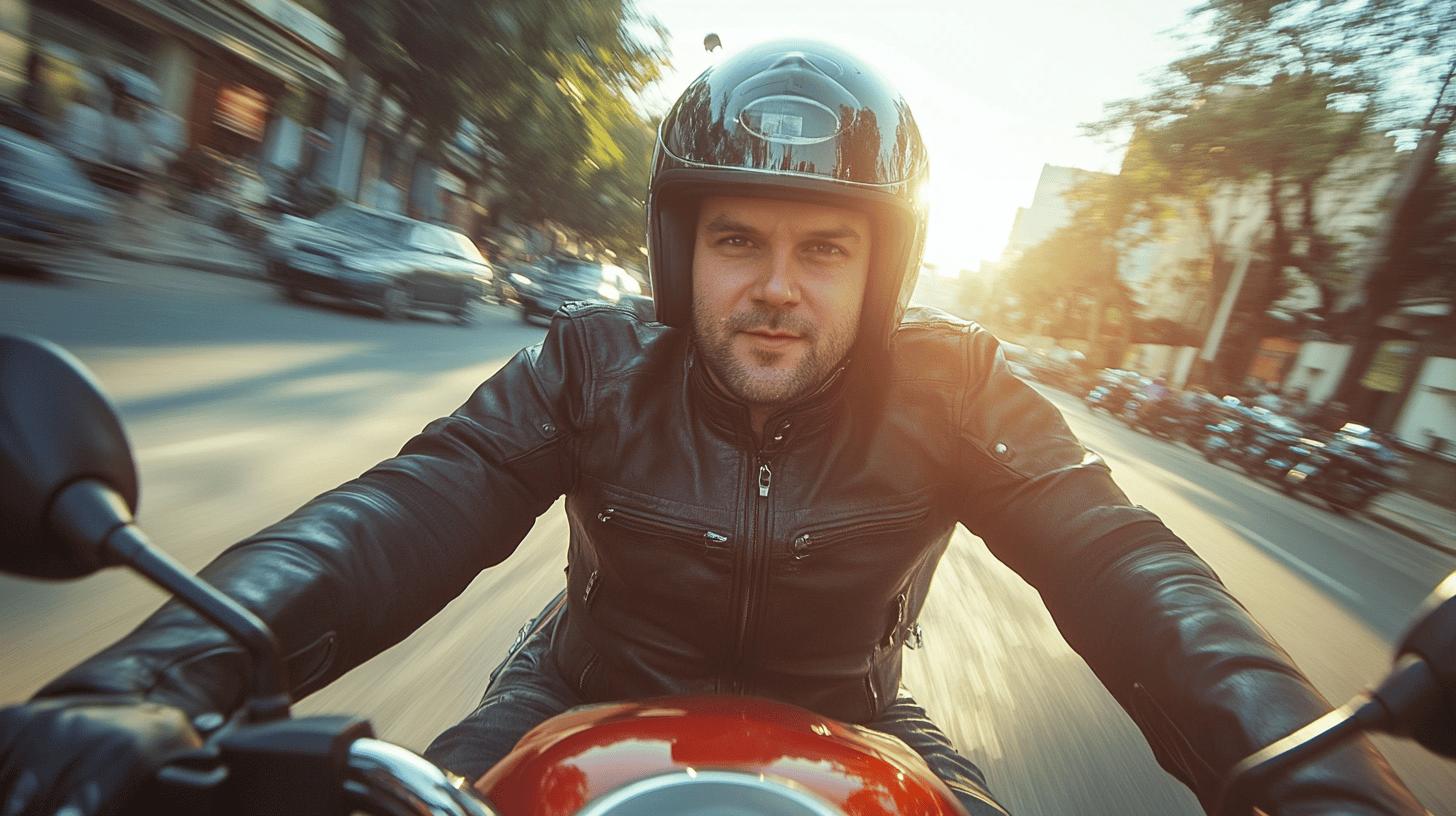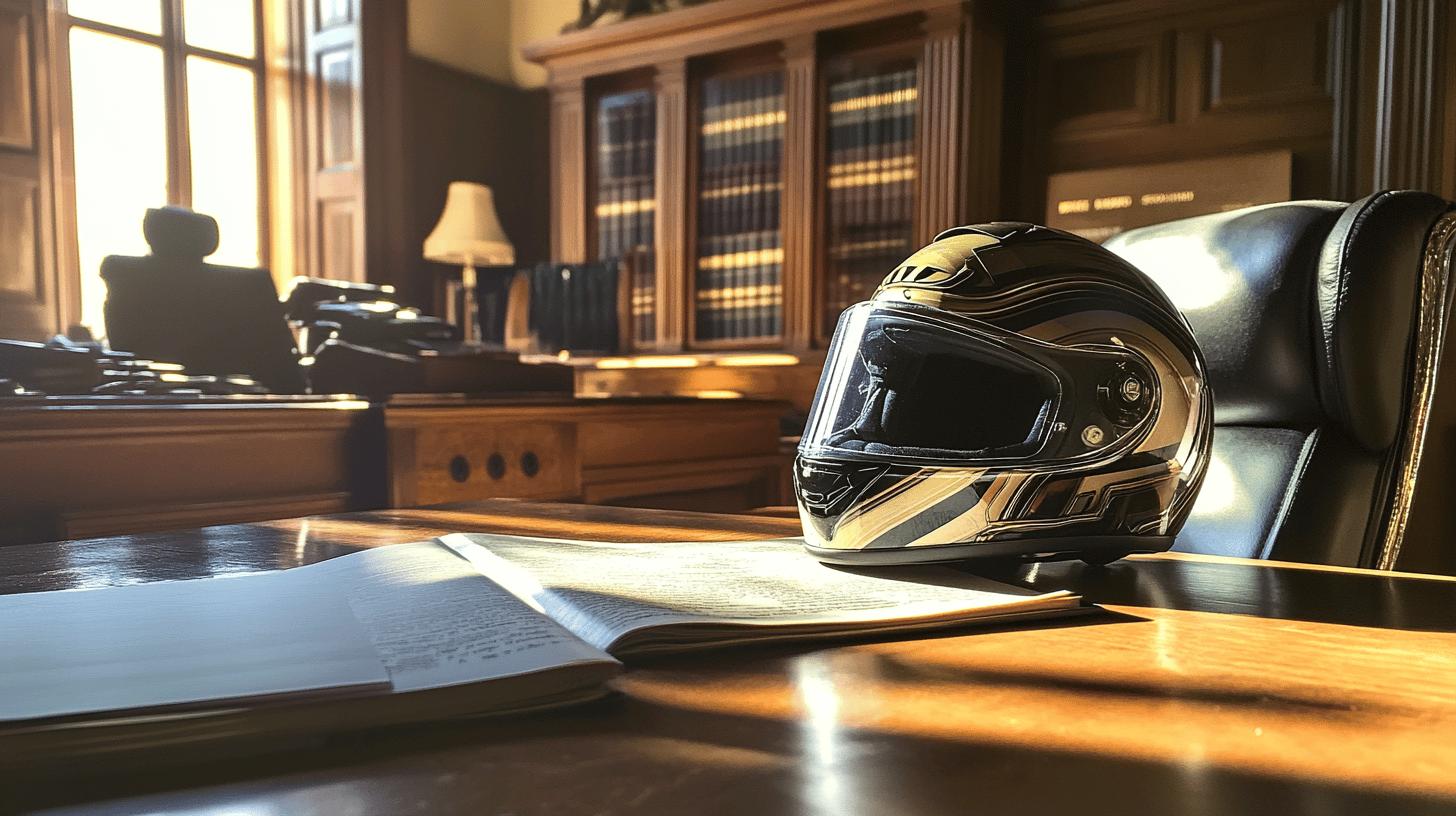Imagine cruising down an open highway, the wind in your hair and the horizon stretching endlessly before you. Now, picture this scenario disrupted by a law mandating helmets, turning freedom-loving rides into regimented routines.
The debate over motorcycle helmet mandates is a contentious one, polarizing riders and lawmakers alike. At its core, it questions personal freedom versus enforced safety.
This discussion delves into whether helmets, often seen as symbolizing protection, should be a matter of personal choice. Explore the arguments that propose maintaining this autonomy for motorcyclists everywhere.
Understanding the Debate Over Motorcycle Helmet Laws

The debate over motorcycle helmet laws has captured significant public interest, often igniting passionate discussions among riders, lawmakers, and safety advocates. This ongoing discourse is marked by a variety of perspectives on the necessity and impact of these mandates. While some view helmets as a critical safety measure, others question their overall effectiveness and potential drawbacks.
-
Personal freedom and autonomy
-
Potential for increased neck injuries
-
Questionable effectiveness in certain crash scenarios
-
Impact on riding experience and enjoyment
-
Concerns over government overreach
Critics of mandatory helmet laws argue that safety statistics may not fully account for potential neck and cervical spine injuries caused by helmets. While data often supports the protective benefits of helmets in reducing head injuries, some studies suggest that helmets might contribute to other types of harm.
This tension between statistical evidence and individual experiences fuels the debate. Advocates for personal choice emphasize the importance of autonomy and point to the varied effectiveness of helmets in different crash scenarios, advocating for riders' rights to choose their safety equipment.
Personal Freedom and Motorcycle Helmets: A Right to Choose

Motorcycle helmet laws have sparked heated debates centered around personal freedom and autonomy. Many riders argue that the decision to wear a helmet should remain a personal choice, free from government mandates. This perspective highlights the importance of individual liberty in making safety decisions and aligns with broader civil liberties discussions.
Balancing safety with autonomy presents a complex challenge. While helmets undeniably provide head protection, some motorcyclists question the necessity of legal enforcement. They emphasize that personal experience and comfort should guide their choices, not obligatory laws.
Riders often cite the impact of helmets on the riding experience, expressing concerns about reduced sensory perception and discomfort. The argument for personal freedom is bolstered by the belief that each rider should assess their own risk and decide accordingly.
This sentiment resonates strongly within the motorcycle community, where self-reliance and independence are highly valued.
Legally, maintaining the right to choose might affect liability and insurance considerations. In states where helmet use is not mandatory, riders could face different legal challenges in the event of an accident.
Questions arise about the degree of responsibility and negligence, potentially influencing legal outcomes and compensation. Advocates for personal choice argue that these legal implications should not override the fundamental right to personal autonomy in safety equipment decisions.
Comparative Safety Statistics: Helmets vs. No Helmets

Motorcycle helmets are widely regarded as a crucial safety measure, with statistical evidence frequently cited to demonstrate their effectiveness in reducing head injuries. Data from various studies indicate that helmets can significantly lower the risk of traumatic brain injury during accidents.
For example, the National Highway Traffic Safety Administration (NHTSA) reports that helmets are estimated to be 37% effective in preventing fatal injuries to motorcycle riders.
Despite these statistics, a vocal segment of the motorcycle community questions the absolute efficacy of helmets. These riders argue that while helmets may protect the head, they could lead to increased risks of other injuries, such as those affecting the cervical spine.
| Injury Type | With Helmet | Without Helmet |
|---|---|---|
| Traumatic Brain Injury | Lower | Higher |
| Facial Injuries | Lower | Higher |
| Cervical Spine Injury | Potentially Higher | Potentially Lower |
| Neck Sprains | Potentially Higher | Potentially Lower |
| Road Rash | Lower | Higher |
The contention against mandating motorcycle helmets often focuses on the possibility of helmets contributing to neck injuries. Critics point out that the added weight and bulk of a helmet could exacerbate cervical spine injuries during certain types of crashes.
They argue that the protective benefits for the head may not outweigh the potential harm to the neck and spine, thus challenging the blanket endorsement of helmet use based solely on head injury statistics.
This perspective emphasizes the need to consider a broader range of safety outcomes, advocating for a more nuanced understanding of helmet impact during various crash scenarios. Such insights fuel the ongoing debate over whether mandatory helmet laws effectively enhance rider safety.
Legal and Economic Implications of Helmet Laws

Motorcycle helmet laws can significantly affect legal outcomes for riders involved in accidents. In jurisdictions where helmet use is legally enforced, failing to wear a helmet during a crash might be perceived as contributory negligence, potentially diminishing the rider's ability to recover damages.
This legal stance suggests that the rider's choice to forgo a helmet could be used to argue that they contributed to their injuries, complicating legal proceedings and affecting compensation claims. The precision of this argument lies in the legal principle that personal responsibility plays a critical role in determining fault and recovery in the event of an accident.
Riders advocating for individual choice argue that such laws unfairly penalize those who choose not to wear helmets, emphasizing their right to personal freedom without legal repercussions.
-
Impact on insurance premiums
-
Healthcare system costs
-
Legal costs and recovery potential
- Influence on motorcycle sales and tourism
Beyond the legal implications, helmet mandates carry notable economic consequences. Mandatory helmet laws can lead to increased insurance premiums, as insurers may adjust rates based on perceived risk and compliance with safety regulations.
The healthcare system might experience changes in costs due to variations in injury types and severities. Legal costs associated with defending or contesting helmet use in accidents can also fluctuate, influencing overall legal expenditures.
Moreover, these mandates may affect motorcycle sales and tourism, as potential riders might reconsider purchases or travel plans due to perceived restrictions on personal freedom. The broader economic landscape thus reflects the intertwined effects of legal mandates and individual choice on both the riding community and related industries.
Motorcycle Community Perspectives on Helmet Mandates

The motorcycle community is a tapestry of diverse opinions when it comes to helmet mandates. Riders often find themselves at the crossroads of safety and personal freedom. Within this community, there is a strong emphasis on individual choice.
Many motorcyclists argue that they should have the autonomy to decide whether or not to wear a helmet, viewing it as a personal decision that reflects their unique approach to riding. This debate is fueled by differing priorities, with some riders prioritizing safety while others focus on the experience and sense of freedom that comes with riding unencumbered by legislation.
Community Activism and Efforts
Grassroots movements and advocacy groups play a pivotal role in influencing helmet legislation. These organizations often mobilize to protect the rights of riders to make personal safety decisions. Campaigns like "Ride Free" and advocacy from groups such as the American Motorcyclist Association highlight efforts to promote choice in helmet use.
These initiatives aim to educate both lawmakers and the public about the perceived overreach of mandatory helmet laws and advocate for the rights of motorcyclists to decide for themselves.
Public opinion on helmet rules reflects a mixture of support and opposition, with significant activism aimed at preserving rider autonomy. Outcomes of these efforts are visible in states where helmet laws have been relaxed or repealed, reflecting a shift toward respecting personal choice.
The motorcycle community's activism underscores the importance of maintaining a balance between safety and freedom, signaling a broader movement towards acknowledging and respecting individual rights within the realm of motorcycling.
Final Words
Engaging with the motorcycle helmet laws debate reveals strong opinions surrounding the balance between safety and personal freedom. Advocates for choice emphasize autonomy, while concerns about safety statistics and potential injuries linger. The legal and economic facets add complexity to the discussion, with implications for insurance and healthcare.
While debates continue, understanding why motorcycle helmets should not be mandatory encourages ongoing discourse and innovation in safety practices. Embracing diverse perspectives can lead to mutually beneficial outcomes that respect both safety and freedom.
FAQ
Why bike helmets should not be mandatory?
Arguments against mandatory bike helmets focus on personal freedom and autonomy. Some believe helmet laws infringe on individual rights, suggesting riders should have the choice to wear a helmet voluntarily.
What are the disadvantages of motorcycle helmets?
While helmets provide head protection, critics argue they might cause increased neck injuries. Others note they can decrease riding enjoyment and visibility, potentially affecting overall safety in certain situations.
Why do people oppose helmet laws?
Opposition to helmet laws often stems from concerns over personal freedom and government overreach. Some motorcyclists view helmet mandates as unnecessary and argue for the right to choose their safety measures.
Which US states do not require motorcycle helmets?
In the U.S., several states do not mandate helmet use for certain riders, often based on age, experience, or insurance coverage. These laws vary widely, reflecting diverse regional attitudes toward helmet regulations.

Brad Mitchell is a seasoned motorcycle enthusiast with over 16 years of riding experience. He’s spent countless hours on the open road, particularly favoring scenic routes aboard his trusted Harley-Davidson. Brad’s laid-back approach to life and riding gives him a unique perspective on motorcycle gear and safety, which he shares through his in-depth reviews and expert advice on ProtectiveGearz.



